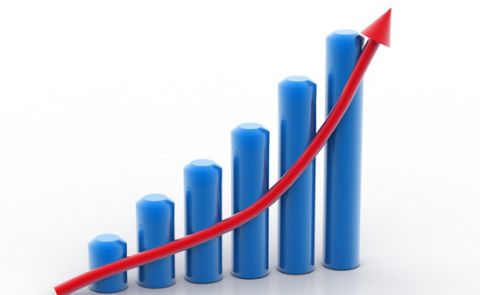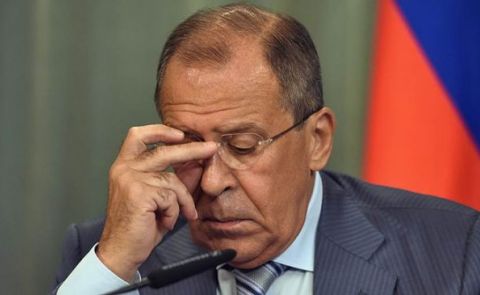
Borell signals greater engagement in South Caucasus; EaP recovery plan until 2025 presented
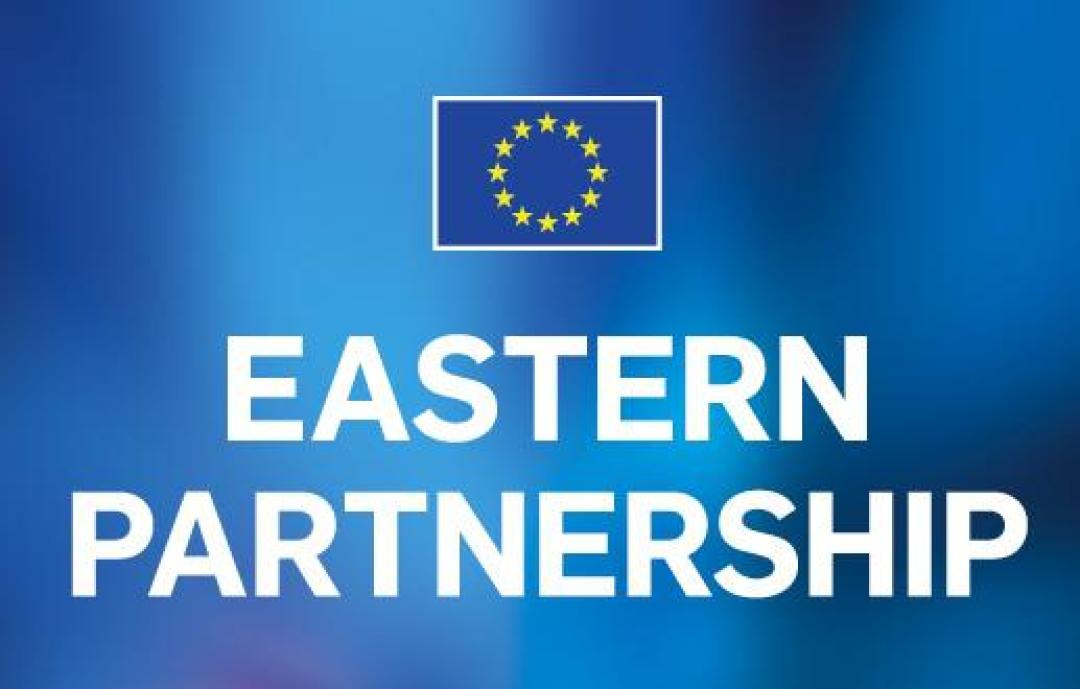
On 2 July, the EU High Representative for Foreign and Security Policy Joseph Borell published an article calling for greater engagement in the South Caucasus. The article came after the Foreign Ministers of Austria (Alexander Schallenberg), Lithuania (Gabrielius Landsbergis), and Romania (Bogdan Aurescu) visited Armenia, Azerbaijan (Caucasus Watch reported) and Georgia (Caucasus Watch reported).
In his article, Borell emphasised that the three ministers passed three main messages to the leaders of the South Caucasus countries: 1) the EU is committed to being an active player to promote conflict resolution in the region; 2) the EU is ready to develop bilateral relationships while supporting regional cooperation and connectivity; and 3) the EU is attached to the inclusivity and flexibility of the Eastern Partnership policy framework. “The South Caucasus is a region at the crossroads between Europe and Central Asia, bordering the wider Middle East. We see a growing number of countries that are active in the region, politically and economically, starting with Russia but also Turkey, China, Iran, and others. The South Caucasus is important to the EU, in terms of transport corridors linking the EU with Asia and the diversification of EU energy resources. So, we should foster the region’s role as a connectivity hub,” Borell underscored.
Borell highlighted the Eastern Partnership (EaP) format, saying that it would remain an inclusive cooperation format, while saying to Georgia that its higher level of aspiration as an associated country was appreciated within the EU. “The EU has a vision to offer for the region and is a trustworthy reform partner. We are ready to help with confidence building and conflict transformation, together with multilateral partners such as the OSCE and the UN. We want to support efforts to build an environment free of fear and hate. We are ready to help rebuild not only physical roads and bridges, but also paths to reconciliation and peaceful co-existence,” he wrote.
The EaP recovery plan
A day later, Borell outlined the proposal on how to take forward priorities for cooperation with EaP states. This agenda is based on the five long-term objectives, with resilience at its core, as defined for the future of the Eastern Partnership in March 2020. It will be underpinned by a €2.3 billion economic and investment plan in grants, blending and guarantees, with a potential to mobilise up to €17 billion in public and private investments. The comprehensive agenda is aimed at increasing trade, economic growth and jobs, investing in connectivity, strengthening democratic institutions and the rule of law, supporting the green and digital transitions, and promoting fair, gender-equal and inclusive societies.
The comprehensive agenda is focusing on recovery, resilience, and reform and includes a selection of the top ten targets for 2025 with clear commitments in all the priority areas of cooperation. They encompass areas like additional support to 500,000 small and medium enterprises (SMEs), building or upgrading 3,000 km of priority roads and railways in line with EU standards, addressing hybrid and cyber threats, fighting corruption, reducing energy consumption by at least 20% in 250,000 households, improving access to safe water services and air quality, increasing access to high-speed internet in 80% of households, providing assistance to vaccinate health workers, additional support to civil society and independent media, mobility opportunities for 70,000 students, researchers and young people.
The new agenda also proposed a revision of the EaP multilateral architecture to adjust the framework to the new priorities and make it fully fit for purpose. The regional economic and investment plan would support post – Covid socio-economic recovery and long-term resilience, considering the ‘build back better’ agenda. The plan outlines priority investments and defines a set of flagship initiatives, which have been jointly identified with the partner countries, in view of their priorities, needs and ambitions.
EaP initiatives for Armenia
For Armenia, the EU has identified five flagship initiatives, namely: 1) supporting a sustainable and innovative and competitive economy – direct support for 30,000 SMEs; 2) boosting connectivity and socio-economic development – the north-south corridor; 3) investing in digital transformation, innovation, science, and technology; 4) building resilience in the southern regions of the country; and 5) investing in a green Yerevan – energy efficiency and green buses.
“Armenia has identified supporting socio-economic recovery through the ‘build-back-better’ agenda, focusing on support to the green and digital transition and completing the north-south corridor as key priorities, as well as further developing its southern regions. These priorities are reflected in the flagship initiatives. As soon as conditions allow, the EU is ready to support post-war recovery and conflict transformation in the southern Caucasus including support for demining, sustainable socio-economic development in conflict-affected regions, heritage preservation, connectivity and broader peacebuilding and reconciliation work,” the EaP working document read.
The total budget for the flagship projects in Armenia stands at €1.5 billion. The first project will provide €500 million in assistance to 30,000 small and medium-sized businesses. Priority will be given to entrepreneurs who work with nature-saving technologies, especially in the regions, as well as women run businesses. The second project will provide €600 million in investment for the as-yet undeveloped sections of the North-South highway, including the Sisian-Kajaran road. The third project will provide €300 million to expand e-government services to regional and local levels. The fourth project will provide €80 million to the sustainable socio-economic development of the Syunik region. The final project will provide €120 million aimed at providing Yerevan with green buses and waste management and waste treatment programs.
EaP initiatives for Azerbaijan
The EaP flagship initiatives for Azerbaijan are: 1) green connectivity – supporting the green port of Baku; 2) digital connectivity – supporting the digital transport corridor; 3) supporting a sustainable, innovative, green, and competitive economy — direct support for 25,000 SMEs; 4) innovative rural development; and 5) smarter and greener cities.
“Azerbaijan has economic diversification at the heart of its policy agenda. Flagship support for SMEs, rural development, connectivity through the greening of the port of Baku and support for a digital transport corridor alongside the further development of the concept of smart and green cities all clearly contribute to this overriding objective. Besides the Eastern Partnership flagship initiatives focused on economic diversification and green connectivity, close cooperation with Azerbaijan, a strategic energy partner for the EU, is assured through the Southern Gas Corridor. The corridor’s possible extension, appropriately future-proofed to accommodate the transmission of low/zero-carbon gases, could also lead to economic diversification and transitory decarbonisation in other countries and regions in the EU’s vicinity in the future. Finally, as soon as conditions allow, the EU is ready to support post-war recovery and conflict transformation in the southern Caucasus including support for demining, socio-economic development of conflict affected regions, heritage preservation, connectivity and broader peacebuilding and reconciliation work,” the document highlighted.
The total budget for the projects in Azerbaijan stands at €140 million. The first project will provide €10 million in support to the Port Baku Authority for further investment in the greening of the port. The second project will provide €10 million to support the digitalisation efforts of Azerbaijan’s transport corridors, including the use of satellite navigation services. The third project will provide €50 million for supporting the Azerbaijani SMEs in renewables/green digital economy non-oil sector. The fourth project will provide €50 million to enable investments in sustainable agricultural production and research to support balanced rural development, climate change adaptation and strengthen the competitiveness and viability of the agro-food sector. The final project will provide €20 million to invest in smart and green cities, starting with Mingachevir.
EaP initiatives for Georgia
The five flagship projects for Georgia are: 1) Black Sea connectivity — improving data and energy connections with the EU Flagship; 2) transport connectivity across the Black Sea — improving physical connections with the EU Flagship; 3) sustainable economic recovery — helping 80,000 SMEs to reap the full benefits of the DCFTA Flagship; 4) digital connectivity for citizens — high-speed broadband infrastructure for 1,000 rural settlements; 5) improved air quality — cleaner air for over 1 million people in Tbilisi. “Georgia has identified transport and digital connectivity (in particular through the Black Sea) and digital development as key priorities and discussed these with the EU at the highest level. Support for SMEs, access to finance and boosting export potential feature high on Georgia’s agenda. The flagships are fully reflected in the government’s programme for 2021-2024,” the document read. The total budget for the projects in Georgia stands at €1 billion and €125 million.
The first project will provide €25 million for the deployment of a submarine fibre optic cable through the Black Sea. The second project will give €100 million for developing new ferry/feeder services and refurbishing ports in the Black Sea. The third project will provide €600 million to support 80 000 Georgian SMEs including equity investments to accelerate their integration into wider EU value chains, with a special emphasis on small producers and farmers. The fourth project will provide €350 million for developing high-speed broadband infrastructure for around 1,000 rural settlements and strengthening “last-mile” connectivity in Georgia. The final project will provide €100 million by installing air monitoring equipment and building capacity and building two urban cable-car lines in Tbilisi.
See Also

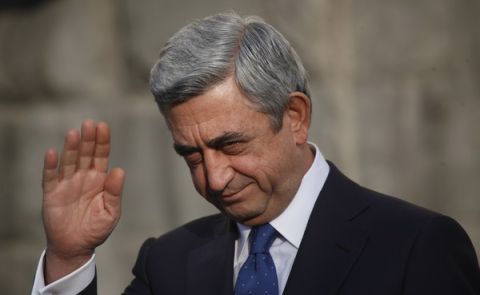
Serzh Sargsyan Rejects Charges, Backs Impeachment, and Warns of Secret Deals
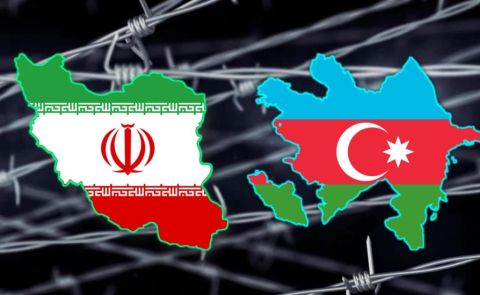
Azerbaijan Confirms Execution of Terrorist Behind Embassy Attack in Iran
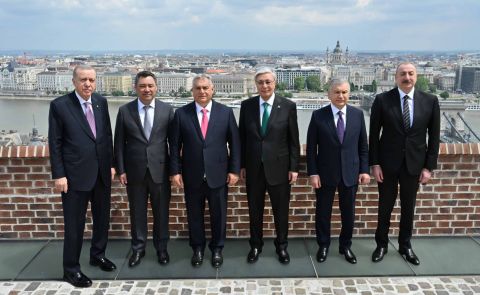
Turkic Leaders Adopt Budapest Declaration, Emphasizing Peace, Trade, and Digital Connectivity
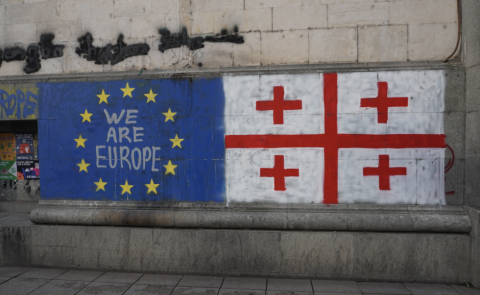
International Officials Criticize Georgian Dream Amid Democratic Concerns
